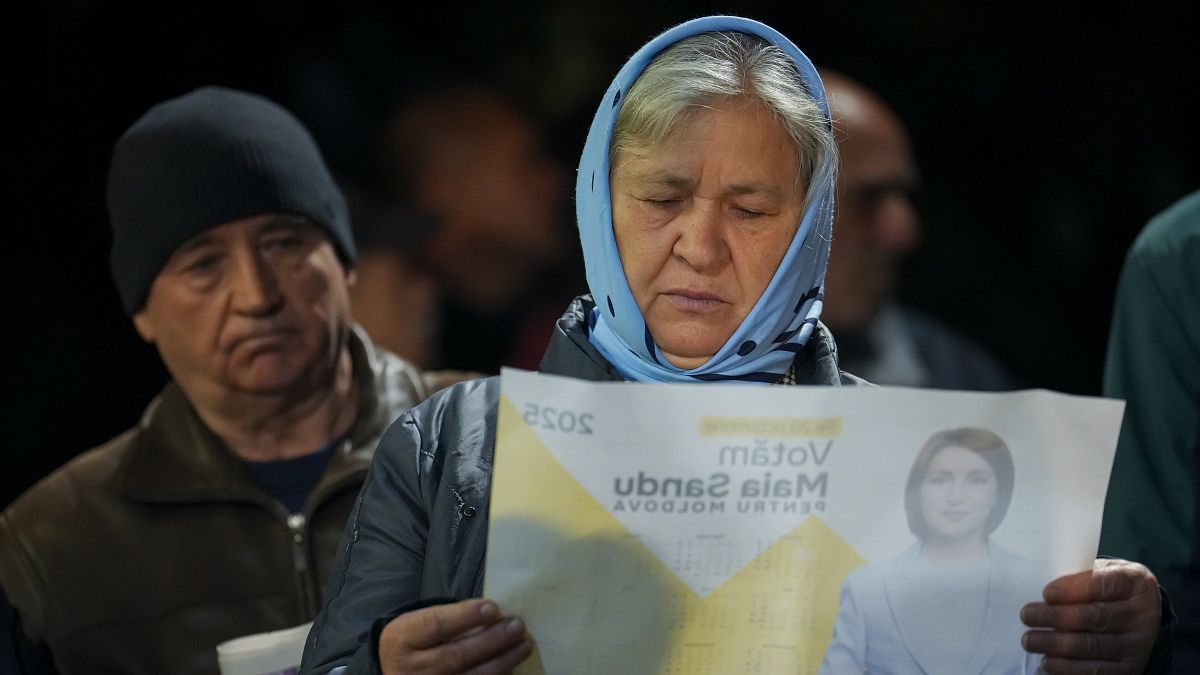Polls in Moldova show that around 60% of Moldovans support EU membership, but a 33% turnout is needed for the referendum to be considered valid. Many Russian-backed campaigns have focused on de-mobilizing voters ahead of the dual vote to choose the next president and to decide whether the country should join the European Union. Despite this, Moldovans are split on whether joining the EU will truly improve their quality of life. Some are skeptical that membership will bring promised changes, while others believe it will boost living standards and raise wages, attracting young people back to the country.
The current minimum wage in Moldova is one of the lowest in Europe at just €261. This has prompted over 200,000 Moldovans to leave the country in the last four years in search of better opportunities abroad. More than 40% of Moldovans living abroad are between 30 and 44 years old, indicating a brain drain that could impact the country’s future population. Many believe that EU membership could help reverse this trend by increasing salaries and improving opportunities for the youth, encouraging them to stay in Moldova and build a better future for themselves and their children.
Political analyst, Anatol Țăranu, emphasizes the existential value of the referendum for Moldovan citizens, as it will determine the country’s civilizational choices. The decision to join the EU represents a shift towards European civilization, rejecting a Soviet past that belongs in history. However, with Russian interference in the election process, including funneling millions of euros to Moldovans to buy anti-EU votes, the outcome of the referendum is uncertain. Pro-Russian oligarch Ilan Shor has openly offered money for votes against EU integration, highlighting the extent of Russian influence in Moldovan politics.
Moldova’s Prime Minister Dorin Recean has warned voters to remain vigilant in the face of destabilization attempts by criminal groups controlled from outside the country. He urges citizens to make a choice between going back to the past, isolated and vulnerable to challenges, or moving forward into the future as part of the family of civilized countries. The decision on EU membership will have far-reaching consequences for Moldova, impacting its economy, stability, and future trajectory. It is crucial for Moldovans to resist foreign interference and make an informed decision that aligns with the country’s best interests.
In conclusion, the dual vote in Moldova to choose the next president and decide on EU membership reflects a critical moment for the country’s trajectory. While Moldovans are divided on the benefits of EU integration, many hope that joining the EU will lead to improvements in living standards, higher wages, and opportunities for the youth. Russian interference in the referendum poses a significant challenge, with millions of euros being funneled to influence Moldovan voters against the EU. Despite these obstacles, Moldovan citizens are encouraged to remain vigilant and make a choice that will shape the country’s future. The outcome of the referendum will determine Moldova’s direction – whether it aligns with European civilization or remains tethered to its Soviet past.


























